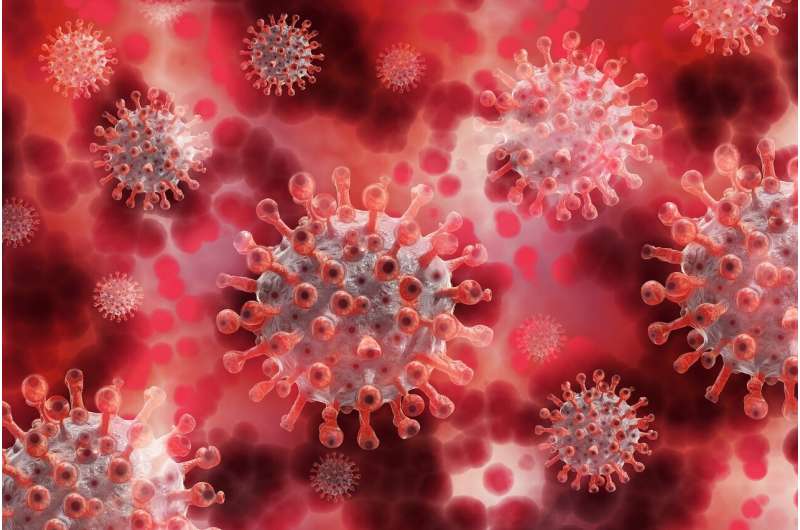Baseline medication use associated with COVID-19 severity in people with rheumatic diseases

Due to sample size limitations, previous studies of DMARD use and COVID-19 outcomes have combined several different rheumatic diseases and medications, and investigated a single outcome—for example, the risk of hospitalization. EULAR has given financial support to a global project collecting information on SARS-CoV-2 infection in people with rheumatic diseases. The COVID-19 Global Rheumatology Alliance physician-reported registry launched in March 2020 to collect data on adults with rheumatic disease and confirmed or presumptive COVID-19.
This analysis from Jeffrey Sparks, Zachary Wallace, and colleagues aimed to investigate the associations between baseline use of biologic or targeted synthetic DMARDs with a range of poor COVID-19 outcomes specifically in people with rheumatoid arthritis (RA). The treatments included were abatacept, rituximab, JAK inhibitors (JAKi), interleukin-6 inhibitors (IL-6i), ortumornecrosis factor inhibitors (TNFi). The outcomes were scored on a scale of one to four for COVID-19 severity: 1) no hospitalization, 2) hospitalization without oxygen need, 3) hospitalization with any oxygen need or ventilation, or 4) death. The authors used an analysis to compare each drug class toTNFi.
Of 1,673 people with RA taking b/tsDMARDs when they developed COVID-19, 498 (34.3%) were hospitalized and 112 (6.7%) died. Rituximab users were more likely than TNFi users to have interstitial lung disease(ILD;11.6% versus1.7%) and history of cancer (7.1%versus2.0%); JAKi users were more likely than TNFi users to be obese (17.3%versus9.0%). After propensity score matching, the authors found that rituximab was strongly associated with greater odds of having a worseCOVID-19outcome compared to TNFi. Among rituximab users, 42 (18.8%) died compared to 27 (3.3%) of TNFi users. JAKi use was also associated with greater odds of having a worse COVID-19 severity. People taking abatacept orIL-6ididnot have worseCOVID-19 severity compared to TNFi. Overall, the results were similar in the sensitivity analysis and after excluding cancer or ILD.
Since the abstract was submitted, Sparks adds that the database was refreshed so the numbers have all changed and the sample size is bigger. The main findings are consistent with the initial submission.
Similar results regarding rituximab have been found in the French RMD cohort. Avouac and colleagues reported findings on behalf of a consortium of contributors, includingFAI2R,SFR,SNFMI,SOFREMIP,CRI, and IMIDIATE. Of 1,090 people included with rheumatic diseases—mainly RA-137 developed severeCOVID-19disease (12.6%). After adjusting for potential confounding factors, severe disease was confirmed to be more frequent in patients receiving rituximab. People who developed severeCOVID-19hadreceived rituximab infusion more recently compared to people with mild or moderate infection.
In this cohort, 89 people cohort died-an overall death rate of 8.2%. Death rate was numerically higher in people receiving rituximab(20.6%) compared to those not(7.4%),and the subgroup of untreated patients with diseases eligible for rituximab therapy (9.9%).However, after adjusting for confounding factors, the risk of death was not significantly increased in people treated with rituximab, although the length of hospital stay was markedly longer in people treated with rituximab compared to both untreated groups.
Results so far from these registries of people with RA and COVID-19 show that baseline use of rituximab or JAKis associated with worse severity of COVID-19 compared to TNFi use. The elevated odds for poor COVID-19 outcomes in people taking rituximab highlights the urgent need for strategies to limit their risk, such as optimal vaccination timing. The global alliance finding that JAKi are associated with poor COVID-19 outcomes is novel, and needs to be reproduced in other studies.
More information: Sparks J, et al. Associations of baseline use of biologic or targeted synthetic DMARDs with COVID-19 severity in rheumatoid arthritis: Results from the COVID-19 Global Rheumatology Alliance. Presented at EULAR 2021; abstract OP0006.
Avouac J, et al. RITUXIMAB: data from the French RMD COVID-19 cohort. Presented at EULAR 2021; abstract OP0284.


















